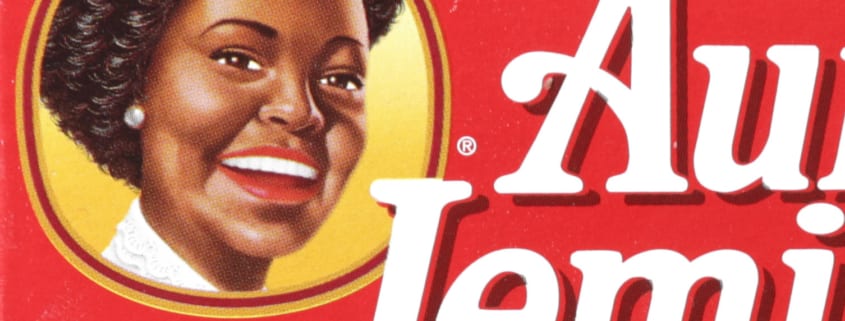Does it Help to Cancel and Erase Aunt Jemima
Does it Help to Cancel and Erase Aunt Jemima?
Jesus sat down opposite the place where the offerings were put and watched the crowd putting their money into the temple treasury. Many rich people threw in large amounts. But a poor widow came and put in two very small copper coins, worth only a few cents.
Calling his disciples to him, Jesus said, “Truly I tell you; this poor widow has put more into the treasury than all the others. They all gave out of their wealth; but she, out of her poverty, put in everything—all she had to live on.”
Mark [12:41]-44
I recently read that Quaker Oats was eliminating the Aunt Jemima brand and was going to change the name on the syrup and other products that the name promoted. I wondered to myself, is this fair to the families of the woman who originally was used to create this image? As well as, was this just another one of those all too familiar, quick fixes to solve a problem? A ready, fire and then aim approach to addressing a problem
On the surface, this name and image represent a strong connection to slavery and racism. Aunt Jemima represents the prototype of a Mammy from the 19th century. A black slave cook for white families. It is clearly a name and image that represents the extraordinarily unfair treatment of our African American brothers and sisters.
But who was the first Aunt Jemima? And why are her relatives so upset with this decision by Quaker Oats. Well, she was Nancy Green, born into slavery in 1834. After the Civil war, in which she lost her husband and children, she moved to Chicago with the family that she had become their cook.
At the age of 59, Judge Walker whom she cooked for, recommended to the R.T. Davis Milling Company that she be hired to represent their brand. Thus, Nancy Green became their image to promote their product, pre-mixed pancake mix. At the same time, Ms. Green became the first African American corporate spokesperson. As well as, one of the first female corporate spokesperson.
At the 1893 World’s Columbian Exposition in Chicago, she became an instant hit. Setting her off on a career promoting the brand. She was given a lifetime contract and she was the hit of many fairs, food stores, and festivals. Often promoted on large billboards with her picture.
Despite her lifetime contract, she was replaced because she refused to travel to Paris to promote the product. In 1910, at the age of 76, she was back working as a housekeeper. She died in 1923 in a bad car accident.
But there is far more to this woman when you dig deeper. She co-founded the largest African church in the United States, Olivet Baptist Church. Using her stature she became a spokesperson and activist in Chicago for equal rights and to end poverty. She lived not angry at her treatment but always trying to help others out.
You also should know that when she died, she was buried in an unmarked grave in Chicago’s Oakwood Cemetery. Thanks to a local Chicago historical society, in March 2020, she finally received her headstone.
When family members heard about the decision to eliminate her from the brand, they were upset. Feeling that important family history was being eliminated. African American YouTube star, Anthony Brian Logan, has called this decision an insult to black history.
I point this out because it isn’t clear that eliminating Aunt Jemima has widespread support. In fact, many disagree. Making we wonder; instead of eliminating Aunt Jemima, perhaps we should consider a way to recognize and honor her. After all, she was America’s first African American corporate spokesperson. More importantly, she was a very early civil rights activist and she helped start the largest African American church in the United States.
My thinking here is that while she used to portray a dark side of American lore, she did far more good. And how does canceling Ms. Green recognized this good? I agree with her family, it would be a shame to erase her from history. Instead, shouldn’t we lift up a woman who did so much good.
Instead of dressing her up like a mammy, why doesn’t Quaker Oats create an image of her as an early civil rights activist and call their brand; Ms. Green’s. And at the same time create a marketing campaign that explains why the change. Quaker Oats has made significant profits off of Nancy Green, perhaps they could share some of these profits to support Ms. Green’s causes.
Now you might think these are radical ideas, they aren’t. Think about how Jesus would want her honored. Perhaps the same way he honored the widow, in the Parable of the Widow. A woman who had been mistreated in the world, but still gave all she had to make the world a better place. Jesus certainly would want the world to know about the good Ms. Green did, as he did with the widow from today’s verse.
In the age of Cancelling, we should change to being an age of Correcting. Just because something is fashionable, like the current fad of canceling, it doesn’t mean it’s right. It is not hard to be brave when it is the fashionable thing to do. Real bravery is thinking things through and then acting, instead of being fearful of backlash and reacting.
Nancy Green gave all she had and died pennilessly. Canceling her solves little. Instead, let’s rejoice at what she accomplished and use her example to follow in our lives. That’s what Quaker Oats should do, rebrand her as the champion she became.
Jesus wants us to honor heroes, not cancel them.
Blessings, until next time,
Bruce L. Hartman



